MONASTERY PRODUCTS
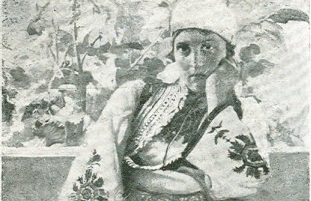
Skopska
Embroidery in frame
Bags
Mugs
Incense Burners
Skopska Blatija
This design is based on holiday shirt embroidery of a traditional costume from the East Skopje region – known as Skopska Blatija.
The motif of the embroidery is imminent “nine flowers”. Five of them form a cross vertically-horizontally, and five on both diagonals. The small cross surrounded by gold threads also has a central place in the border.
The photo is from 1919. The costume is now part of a museum collection. The embroidery is in 5 colors.
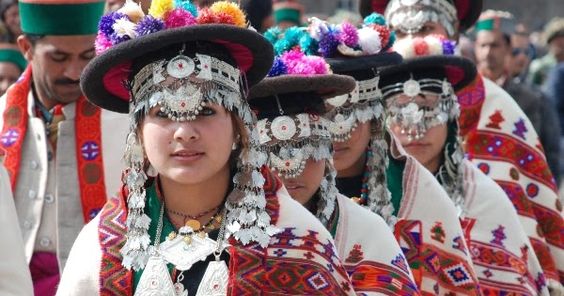
Kullu
Bookmarks
Bags
Mugs
Incense Burners
Kullu
The design is from woolen shawls with tapestry -woven borders from Kullu in India’s Himalayan foothills.
Although the original design is from Kullu, the same patterns, with crosses and even the same colors, are widely used on Macedonian traditional robes and tapestry weaves.
Tapestry weave is practiced in many parts of the world.. Among the oldest are many examples that survive from the early Christian era in Egypt and are popularly known as Coptic weaving. Traditional robe in Kullu, also maintained the cross as a significant part of its design.
The church in India was founded by St.Thomas The Apostle. He appointed priests and bishops, and suffered martyrdom there.
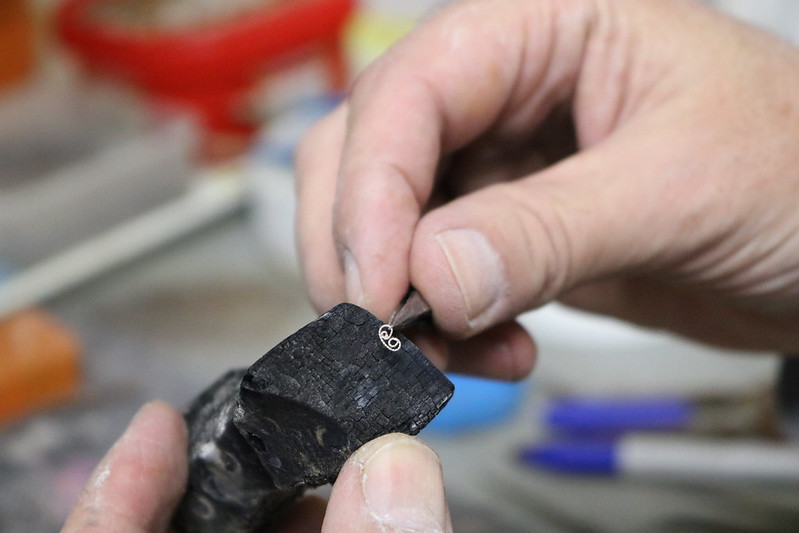
Filigree
Embroidery in frame
Bags
Mugs
Filigree
Filigree is one of the most delicate types of jewelry metalwork, which generally uses precious metals, like gold and silver, in art pieces created with small and detailed beads and twisted threads fused together or onto an object. Its fragility often makes us remember the texture of lace.
Traditionally, this technique is connected to luxury design and fine craftsmanship.
The butterfly has several stages of development. In the first it is a caterpillar, then in the second stage it wraps itself in a cocoon. The last – the butterfly, is a symbol of the new birth, resurrection, new life, to which every Christian should strive.
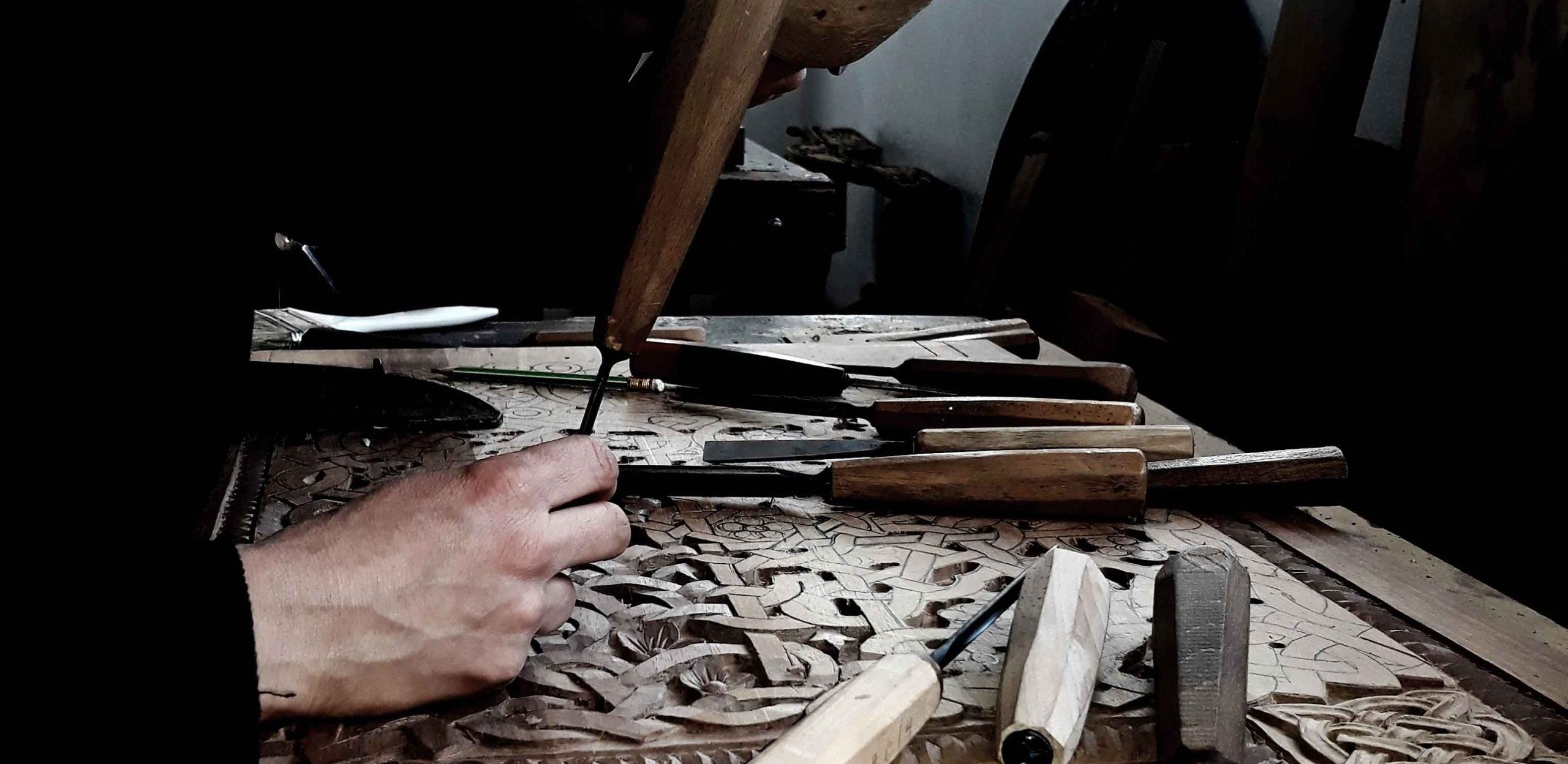
Slepche
Mugs
Incense Burners
Slepche
The handicraft is based on details of hand-carved element of the iconostasis (work of the former woodcarving workshop Emo-Ohrid) and a single-leaf door (work of Mile Nestor) prepared and placed for the temple of the Dormition of the Most Holy Mother of God – Matka, in 2000. The carving is a project of Vasil Iliev, who draws all the motives from the low carving of the Slepce school – an authentic stylistic expression in carving in the XIV century, created by the monks of the monastery of St. John the Baptist in Slepce.
Today, the sisterhood of the Slepce Monastery, with God’s help, through many years of research and study of the Slepce cultural heritage, restores the carving workshop in the authentic style of the former shallow carving dominated by braid.
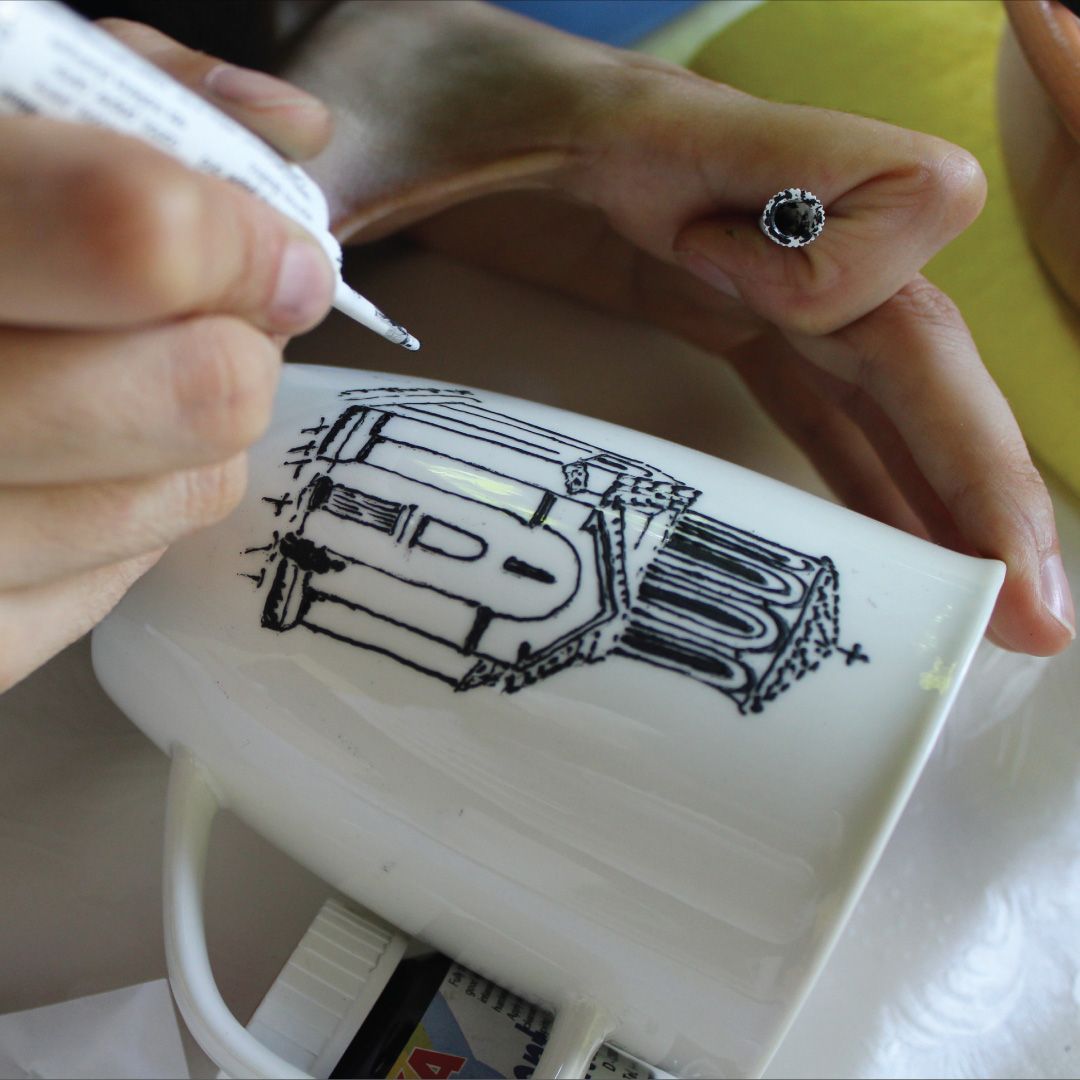
Matka Monastery
Bage
Mugs
Incense Burners
Dormition of the Most Holy Theotokos Church
The temple, recognizable by its architecture, was built in 1337 after the model of the temples of Mount Athos, in the form of an embossed cross with a dome. In the walls themselves, as a testimony to the existence of an older temple, and a kind of display of the continuity of the Liturgical life, are built stone parts of the altar iconostasis, pillars, pilasters with and without stone plastic all from the IV century. The temple itself has a central place in the monastery-Matka, and is its main feature.
The Theotokos Star is a detail from the wooden stand for the Miraculous Icon of the Most Holy Theotokos – Matka.
